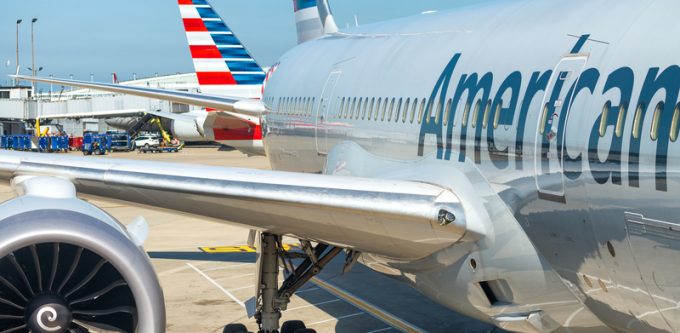Global airfreight volumes blooming as flower shipments take off
Global air cargo tonnages have taken off again after three consecutive weeks of subdued volumes, ...

American Airlines Cargo is embracing technology: during the long run-up to installing its iCargo system, completed last summer, staff used to joke that the new platform could do everything except make coffee – but the system quickly proved its worth.
Having dealt with a multitude of legacy systems that could not communicate with each other, cargo management found the new platform could provide “a comprehensive end-to-end view”.
Among other things, this allowed modelling of cargo-only missions for an airline that was used to approaching flight planning from the passenger side.
“We could understand the real costs – costs that we would have no matter what. What could we put on these flights and what should the pricing be?” said Jessica Tyler, president cargo and VP operations, innovation & delivery.
It made a slow start, but by the end of this April, American had run more than 8,500 cargo flights since the pandemic hit the global airline business. Ms Tyler described this contribution as “incredible – not only from a revenue perspective, but also to the bottom line”.
Originally, management expected those flights to end by April or this month, but this has been pushed back to June/July, and possibly further.
“We will continue cargo-only flights as long as the economics make sense,” Ms Tyler said. “We can make decisions week to week.”
For all its potential, the iCargo platform is only one part of a broader transformation that seeks to harness technology to make vital strategic changes. A core element is a push to leverage data differently.
The new platform helps, as it provides a single view instead of conflicting and sometimes inaccurate data from different legacy modules that stood in the way of valuable insight.
The next step is to deploy better analytics tools and use data in new ways.
Historically, nearly 80% of analysts’ time was spent gathering and cleaning data, leaving only 20% for analysis, noted Ms Tyler, adding: “We try to flip that model.”
Another big focus for American has been the development of a customer management tool and APIs, aiming to get better insight into customer needs and expectations, in order to find customised solutions.
“I’m definitely in the camp that believes technology allows you to engage better with customers in a more personal way,” said Ms Tyler.
And, not only have customer expectations evolved, the mix of freight has changed dramatically in recent years, she said.
“Our bread and butter was big hard freight; now we’re seeing a ton of loose, not pre-built, shipments, so we need to do things differently.”
One possible change in approach could be the establishment of an e-commerce arm, as some carriers have done –”anything is possible”, Ms Tyler commented. She would not elaborate, but she sees a fundamental need for change that extends beyond American to the whole industry.
“The nature of this industry is changing,” she said, adding that the technology that required for air cargo to run a more sophisticated business is already available, and “there’s nothing holding us back except the way we work today”, she added.
She sees the industry being at a critical point, where players either have to figure out their value in the supply chain and act on it, or they will shrink and no longer be part of it, and at committee meetings and other online gatherings, she has sensed fear of this critical juncture among various leaders.
“When we talk about different distribution platforms, you hear the fear,” she said. “I love that fear. I think fear helps you grow and helps you define your value more succinctly.”
Some of her peers may disagree with that, but it is hard to disagree with the need for transformation in a business that is undergoing profound change.
Comment on this article